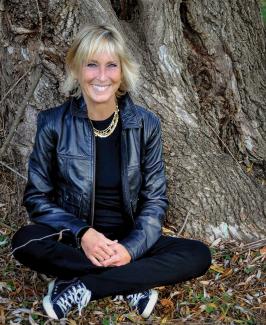“The whole Tulane experience seemed like a flowerpot with fertilizer. And I was this little sprout and it just bloomed my whole life.”
It all started with Dylan receiving a failing grade from her freshman English professor, Fannie Rayne Russ. “I went after class and said, ‘How could you do that?’”
Russ’ reply: “I’m going to fail you until you work at your potential.”
It was the first time during Dylan’s educational experience that anyone had challenged her — and recognized her full capabilities. Russ later bestowed academic honors on Dylan at graduation.
Serendipitously, Dylan became the overnight DJ at WTUL, Tulane’s student-run radio station. That would spark a successful career in media: She became the most-listened-to female disc jockey in the country on WMAQ in Chicago and was the first woman to hold a morning drive time spot on AM radio at WNBC in New York. She’s also an Emmy-winning television host and producer.
But it was her time in sociology class with Professor Edward Morse that would lay the groundwork for On Our Own Island. “I was so engaged by the way he taught how to look at and examine the zeitgeist of the world.”
Dylan conducted her senior thesis on death, with the belief that death was not the end, rather a transition. “He allowed me to hang out in mortuaries and emergency rooms for my senior year.”
In Morse’s class, Dylan also read the seminal works of Elisabeth Kübler Ross, one of which she would eventually read to her husband before he experienced his own transition. “She (Kübler Ross) says the most powerful and important lessons we all have to learn is to unconditionally love.”
Dylan hopes viewers take away exactly that from On Our Own Island and recognize that death and love intersect. “The fear of death informs our life so much so that we hold on so tight that we’re unable to love fully,” she said. “I hope the film contributes to mitigating society’s fear of death, and at the same time, supports the idea that unconditional love is the most important thing of all.”































































